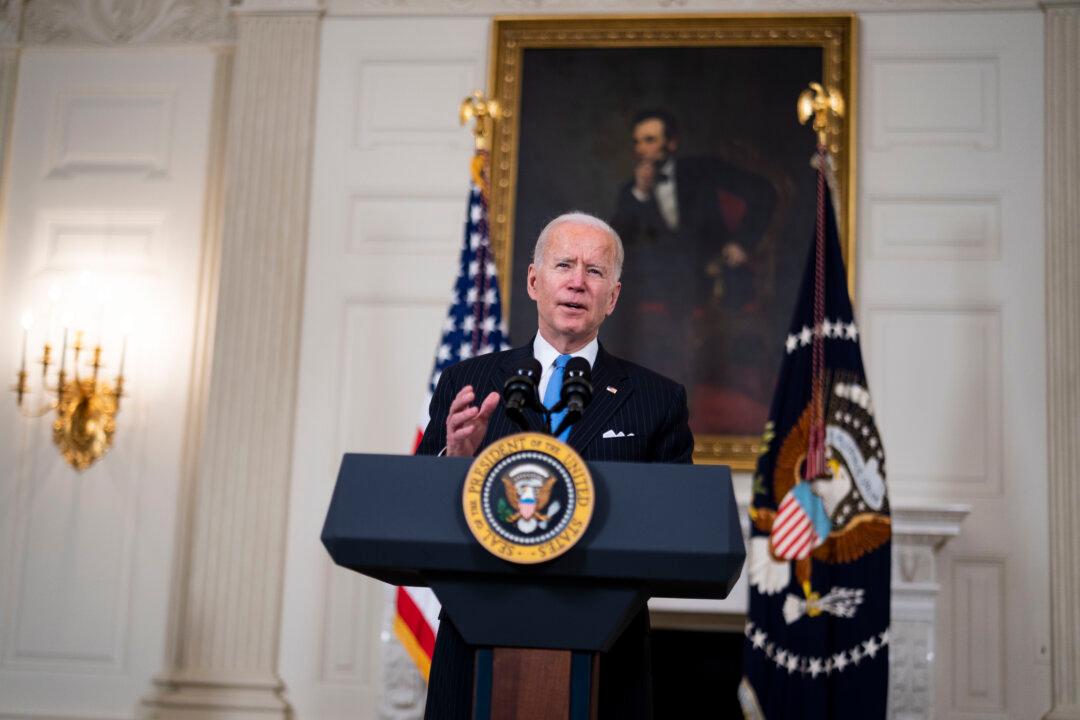President Joe Biden is considering tax increases, new fees, and a corporate tax rollback to pay for an infrastructure plan that’s now taking shape, according to White House press secretary Jen Psaki and a California Democrat familiar with the discussions on the matter.
Biden floated a $2 trillion infrastructure bill while campaigning, although his administration has so far declined to specify a price tag. In remarks to “Axios on HBO” on March 8, Sen. Joe Manchin (D-W.Va.) suggested the package could cost as much as $4 trillion, adding that he would oppose taking on more debt to fund such a proposal but would instead insist on tax hikes.





